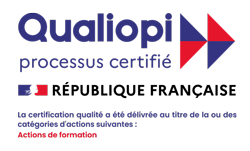Willems® Pedagogical Diploma
for Musical Education

2025/26 > Only open to 1st year students – LYON/PARIS/NANTERRE- France
Are you a musician with a good musical background and interested in teaching?
This course focuses on the pedagogical practice of the foundations of musical education according to the humanist principles of Edgar Willems. Over 2 years, the programme covers all 4 levels of the Willems® progression, with more intensive practice of the first two.
It leads to the Willems® Pedagogical Diploma for Music Education.
This Diploma differs from the former name of ‘Willems® Pedagogical Diploma in Music Education’ in that it is aimed at experienced musicians, with training reduced to 2 years instead of the previous 3.
This change in the FIW's proposal is designed to enhance the value of practical teaching. Students on this ‘Blue Cycle’ do not come to learn music at the same time as the pedagogy of music education, as was the case in the past. The programme is mainly devoted to how to do things, underpinned by an in-depth knowledge of fundamental pedagogy.
This Willems® Pedagogical Diploma for Music Education is aimed at musicians and teachers who hold pre-professional diplomas of the CRR type (in France), such as a DEM in music training or instrument, or a licence, bachelor or master's degree from a conservatoire supérieur or Haute école de musique.
In the absence of a diploma of this kind, an entrance test is used to confirm the possibility of following this training or to direct candidates towards a more appropriate course. This entrance test will include :
- A solfied sight-reading a cappella to the beat of the bar
- A rhythmic reading while chanting an onomatopoeia
- A test of interval and 3-tone chord recognition (4 species in fundamental position)
- A vocalized melodic improvisation, in dialogue with the examiner
- A rhythmic improvisation using onomatopoeia, in conversation with the examiner
- A rhythmic dictation
Melodic dictation with modulation - 2-part dictation
- An instrumental or vocal piece (or excerpt) of 3 to 5′ in length.
The application includes the registration form, copies of diplomas and a letter of motivation.
The course runs over 2 years, with 8 weekends a year. These weekends are supplemented by 2 summer courses, including an international conference.
The 254 hours of tuition are divided into :
- Year 1 / D-EM1: 109 hours / 80h of classes + 1h of individual assessment + 8h of assessments (written & oral) + 20h of Congress (International Meeting)
- Year 2 / D-EM2: 145 hours / 84h of classes + 2h of individual assessment + 12h of written exams + 12h of international final exam seminar/ oral exams + 35h of Congress (International Meeting)
The course will be open from 10 registrations.
Any course started in the 1st year will be completed.
1. Musicality :
- Full aural development (qualities of sound, sound movement, intervals, 3- and 4-tone chords, aggregates and intratonal space)
- Sense of rhythm and metre, polyrhythm and polymetry, body movement and rhythmic improvisation
- Vocal culture, singing, acquiring a repertoire of songs, melodic sense, free improvisation, modal, tonal and written melodic inventions, choral conducting
- Vocal and instrumental harmony for 2, 3 or 4 voices, harmonic cadences, harmonic improvisation and written compositions - The trainee must personally own a piano or at least a digital keyboard. -
- Solfeggio and rhythmic, melodic and harmonic dictation.
- Listening to music and reading orchestral scores
2. Pedagogy:
- Fundamental pedagogy course, covering themes relating to music, musical and instrumental education and the psychology of the child in musical action, based in particular on the written work of Edgar Willems
- Observation of practical lessons (live with children or on video), pedagogical progression from musical initiation (first and second levels), pre-solfège and pre-instrumental (third level) to living solfeggio (fourth level) and instrumental beginnings, this progression also being tested on oneself.
- Throughout the course, participants will work together on video extracts of practical lessons brought in by them and filmed in the course of their work with their own pupils.
| Summary of total cost WPDME training | Individual | |||
|---|---|---|---|---|
| 1st year: tuition fees + administration fees | 1.530 € | |||
| 2nd year: Tuition fees + Final examination seminar + Administration fees | 2.100 € | |||
| + FIW annual membership: €20 (€15 for students on presentation of proof)’ | ||||
| Total WPDME training (1st and 2nd year) | 3.630 € |
(Prices subject to change)
- Prices exclude transport, accommodation and meals
Prices subject to possible adjustments during the course
Prices not subject to VAT (VAT not applicable, article 293B of the French General Tax Code)
